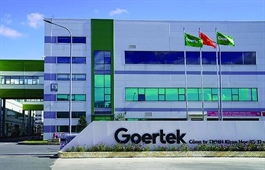Ministry proposes developing green e-commerce law
Ministry proposes developing green e-commerce law
The MoIT has drafted proposals to develop the Law on E-commerce which will be included in the National Assembly's law and ordinance development programme in 2025 and submitted to the NA for consideration and comments in October.

The Vietnamese online shopping and food delivery sector used about 160,000 cardboard boxes and 171,000 tonnes of plastic, mainly single-use plastic, in 2024. Photo vneconomy.vn |
The Ministry of Industry and Trade (MoIT) has proposed a new green e-commerce law amid concerns over 800,000 tonnes of plastic waste in 2030.
According to a survey of the Vietnam E-commerce Association (VECOM) announced in 2024, the rapid development of Việt Nam's e-commerce industry has caused many environmental problems, especially waste from packaging, order fulfillment and online food deliveries.
The MoIT's draft proposals to develop the Law on E-commerce will be included in the National Assembly's law and ordinance development programme in 2025 and will be presented to the NA for consideration and comments in October 2025, before being approved at a NA meeting in May 2026.
According to the MoIT, e-commerce is currently regulated in Decree 52/2013/NĐ-CP dated May 16, 2013 and Decree 85/2021/NĐ-CP dated September 25, 2021. The decrees provide the basic legal framework for the operation models of e-commerce, but the current regulations need to be adjusted towards sustainable e-commerce development to maintain long-term development.
Statistics show that the Vietnamese online shopping and food delivery markets in 2024 reached US$22 billion and $1 billion, respectively. The sector used about 160,000 cardboard boxes and 171,000 tonnes of plastic, mainly single-use, according to the World Wildlife Fund (WWF).
The e-commerce industry alone threw away more than 7,600 tonnes of plastic to sell $1 billion worth of goods, while food delivery released nearly 18,600 tonnes of plastic.

The Vietnamese online shopping and food delivery sector used about 160,000 cardboard boxes and 171,000 tonnes of plastic, mainly single-use plastic, in 2024. Photo vneconomy.vn |
According to VECOM, Việt Nam’s e-commerce market in 2024 is estimated to reach about $31 billion, of which online retail sales account for more than $20 billion. VECOM predicts that e-commerce will reach nearly $40 billion in 2025 and about $100 billion in 2030.
However, since 2019, Vietnam's e-commerce has revealed unsustainable factors. In particular, the boom of e-commerce during the COVID-19 pandemic has clearly revealed negative impacts on the environment, typically the wide scale use of packaging and plastic materials.
It shows that there is a significant increase in waste from packaging and transportation, putting great pressure on the environment. The amount of plastic waste from e-commerce might be up to 800,000 tonnes in 2030.
Green standards and sustainable development responsibilities are becoming common requirements in global e-commerce activities, requiring businesses to integrate emission reduction solutions, use environmentally friendly materials and build green supply chains.
Therefore, the MoIT believes the development of e-commerce needs to emphasise the development of environmentally friendly e-commerce infrastructure, encourage businesses to apply green technology and increase consumer awareness of sustainable consumption. These steps not only help protect the environment but also enhance the competitiveness of Việt Nam's e-commerce, contributing to the creation of a sustainable digital economy. The MoIT proposes that the new law will focus on green and sustainable e-commerce development.
According to the MoIT, in terms of economic impact, the State needs to allocate resources from the central to local levels to participate in promoting sustainable e-commerce development.
For businesses, it is necessary to invest more in technology and innovate business processes to meet new standards, especially regarding green e-commerce.
For people, product prices may increase due to the cost of applying environmental standards and improving infrastructure.
However, from the analysis, the MoIT believes that the policy on developing e-commerce in a green and sustainable direction has mostly positive impacts, and will help achieve the best economic benefits and social impacts. Therefore, the MoIT proposes to choose this option for the development of the Law on E-commerce.



























